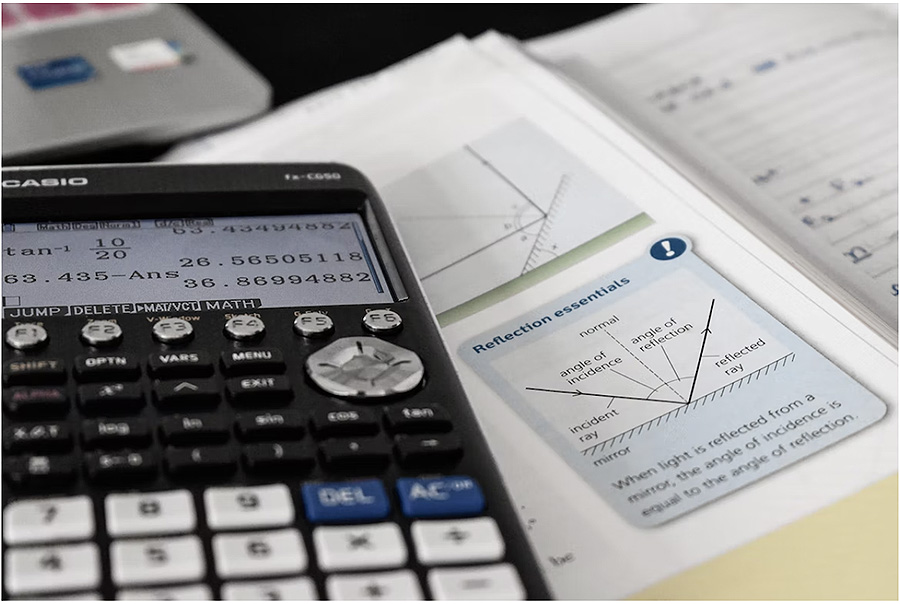Table of Contents [show]
Is it possible to find a profession without mathematics? If you are reading this, then you belong to my “People with Bad Math Skills” club. So, if you still don’t know what to study and you don’t like math, in this article I offer some interesting options for you to consider if numbers aren’t your thing.
Choosing your professional path is a tough decision to make. Some students don’t think much of it and focus on getting accepted to their dream school. They’re looking for someone to write my personal statement for me and ask experts how to impress the admissions committee. They go out of their way to become college freshers just to realize they’ve opted for the wrong field in a couple of years. So, if you have doubts about your degree – take your time and act wisely, and if you’re already enrolled in a college that you feel isn’t the best fit, do not despair, because it’s now easier than ever to transfer colleges. With our comprehensive list of non-math degrees, you will have plenty of ideas to choose the best program for you.
 Before we get to know a career without mathematics, we must recognize that throughout history it has been vital to the evolution of mankind. For example, astrophysicist Lucy Green, in a piece for the BBC, explained that Neptune, which began the study of the solar system, was found because of mathematics. Do you get the picture?
Before we get to know a career without mathematics, we must recognize that throughout history it has been vital to the evolution of mankind. For example, astrophysicist Lucy Green, in a piece for the BBC, explained that Neptune, which began the study of the solar system, was found because of mathematics. Do you get the picture?
Mathematics is inevitably present in our daily lives, so the idea of a career without mathematics seems a little far-fetched. Here is a list of the best university degrees without math.
1. Communication Sciences
This is one of the best options for those looking for non-mathematics majors. But be careful, you must have certain skills, such as writing well, being able to express yourself, being very extroverted and creative, etc. In addition, being a communicator implies a certain responsibility concerning the message you are conveying and the audience you are addressing.
So if you are looking for a non-mathematical career that will allow you to evoke creativity, talent, and at the same time a commitment to the community in which you live, social communication is for you!
On the other hand, if you just want to get into the world of communications from a more commercial environment, you may want to steer your studies in the direction of content marketing or advertising.
You might be interested in starting to figure out how to become a copywriter and compose academic papers for students’ “write essay for me” requests.
As we can see, the communication sciences are good in that there are several areas from which we can choose:
- Social Communication
- Journalism
- Audio-visual communication
- Public relations
- Institutional communication
- Communication and marketing
- Communication and Advertising
- Communication and photography
As I mentioned above, there may be some number-related subjects in these non-mathematics programs, such as budgeting or simple statistics, but nothing very difficult.
2. Law
This non-mathematics degree belongs to the social science branch and is based on the law as well as an understanding of legal norms. This means that if you decide to study law, you will have to like to read a lot and learn by heart.
Law, like other non-mathematical professions, can surprise you, and that doesn’t mean you have to take an old-fashioned view of the law. You can navigate new technologies and engage in virtual crime investigation. That’s why you need to know firsthand what privacy policies and other related issues are.
Like the communication sciences, the law is also divided into branches, which you can choose depending on your aspirations. To do so, consider that there are two main groups in law: public and private:
Public Law Branches:
- Constitutional law
- Criminal law
- Administrative law
- Labor Law
- Tax law
Sectors of private law:
- Civil law
- Commercial law
- International law
3. Psychology
Psychology is one of the professions where math is not used because it is a science that studies human behavior through behavior or experience. Did you know that every company has psychologists? So if you choose to study psychology without mathematics, you will have a very wide field of study.
Thus, psychology is not only concerned with the clinical or counseling treatment of individuals. You can also apply this non-mathematical degree to business and even government.
As you study psychology, you must remember that while you will not see numbers all the time, there are several subjects related to statistics, as you will have to constantly research and study or perhaps read about them to further your professional development in this field.
4. Pedagogy
If you are passionate about sharing your knowledge or perhaps helping people learn better, then education is one of the non-numerical professions you will enjoy. It is a non-mathematical profession related to the social sciences in which you will be willing to teach knowledge in your specialty.
You can also choose different levels of education, such as elementary school or even university.
If traditional education is not your thing, but teaching is your passion, don’t worry! Studying this non-mathematics degree can also make you part of the new wave of online courses, seminars, or workshops.
Don’t worry, you can specialize in some areas that may be more related to creativity or communication. Ready to teach? Remember, there is no better teacher than someone who never stops learning.
5. Graphic Design
If you have the soul of an artist, this non-mathematical degree is definitely for you. You will learn not only how to create beautiful images, but also how to communicate a purposeful message. Thus, you will be able to choose an area according to your interests.
As a graphic designer, you will be able to work for companies in design, publishing, marketing, advertising, etc.
Like law, this is also one of the non-mathematical and well-paying professions, as it allows you not only to work for large companies but also to be a freelancer, work remotely and earn several incomes per month.
6. Fashion Design
If you’ve always dreamed of creating your clothing brand, fashion design is not a math profession you’re going to like. If you choose to study fashion design, it is imperative that your creativity is at an all-time high.
As you can imagine, this profession also has many professional applications, not just creating a collection. You can start by studying this profession without the complicated math and then turn your attention to costume design, clothing production, and even styling.
In this non-mathematical degree, as in graphic design, you won’t have subjects related to numbers. But be careful, you will have to have a minimal understanding of units and equivalents.
On the other hand, you can find specialized courses in such subjects, such as illustration, creative techniques, dressmaking and sewing, and others as part of this degree.
7. Translation and Interpretation
If you consider yourself a “crackpot” at languages, with this non-mathematics degree you can analyze all the linguistic elements of a language, allowing you to translate and interpret documents, books, videos, and everything!
These days, translators are in demand and, above all, highly paid professionals. Imagine that in the globalized environment we live in, translating long texts, even small user manuals, is necessary. The best part about this career without math? You can work 100% online, remotely, and for foreign companies.
Why Should We Never Have a Bad Relationship With Mathematics?
Indeed, in this article, you have found several alternative university degrees that do not include mathematics. However, we should never have a bad relationship with numbers, since they will be present throughout our lives.
In everyday life, you will have to pay bills, go to the ATM, shop at the supermarket, and do other activities related to mathematics, no matter what you choose to study. Moreover, as I mentioned above, although these occupations are not related to mathematics, you can’t say that numbers would disappear completely.
In fact, if I were to give you a recommendation, it would involve making the most satisfying connection between mathematics and the activities you most enjoy, which, by the way, might involve one of these professions with a little bit of mathematics that you are inclined to do.
Further Reading
Vaping – Hobby and Lifestyle? Here’s How to Tell
Vaping Facts – Some Interesting Must-Know Facts
What To Consider When You Want To Start Vaping




